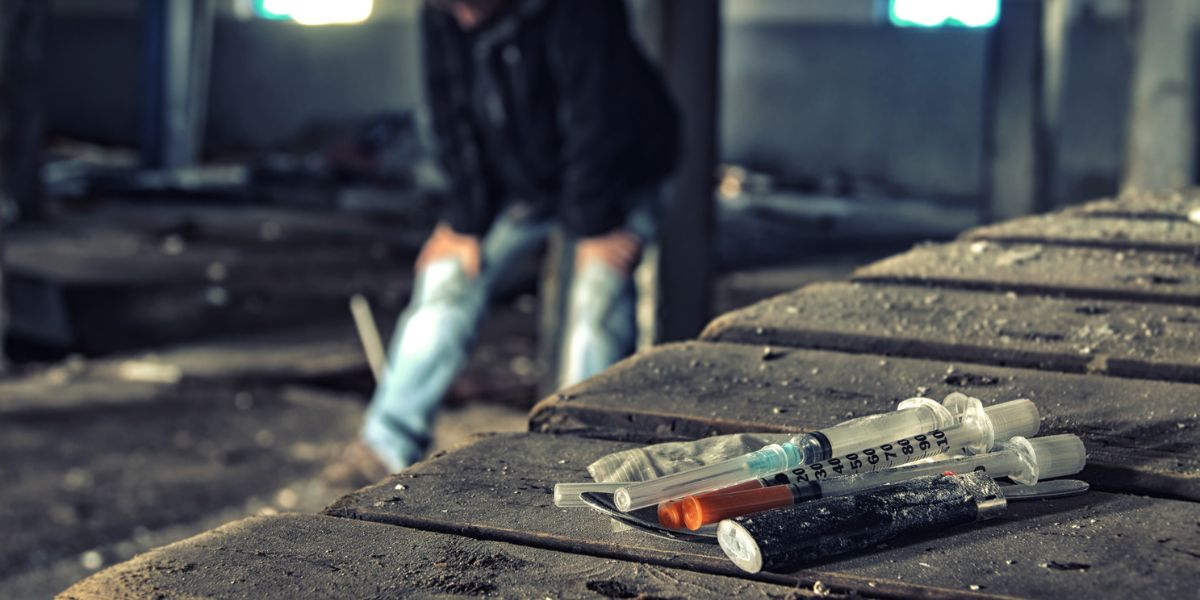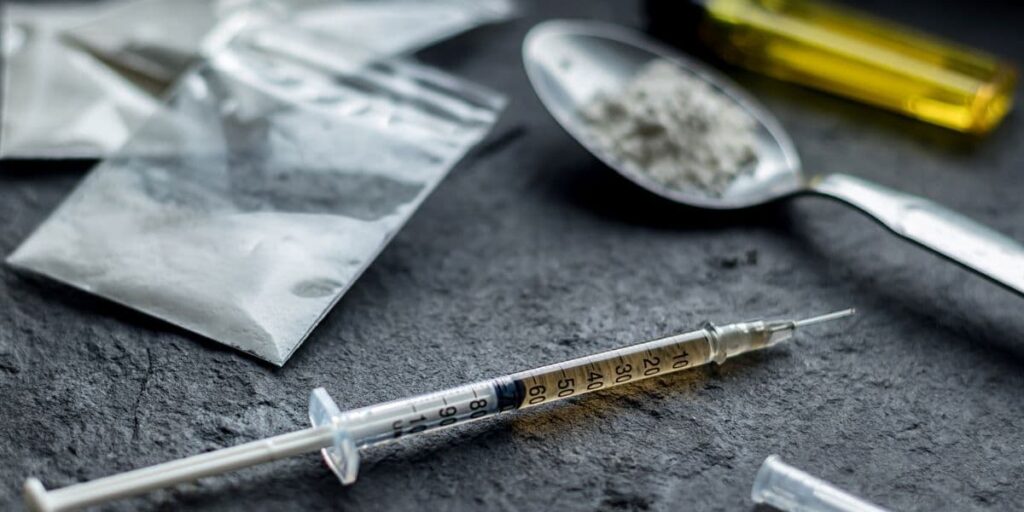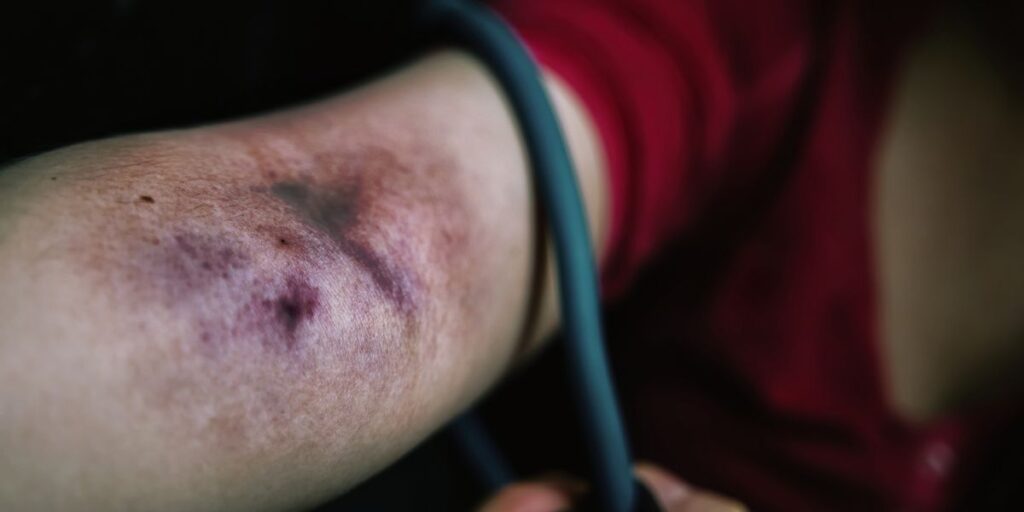Heroin Addiction Signs, Symptoms, and Withdrawal


Heroin addiction is steadily increasing in the United States. This shows that there is a need for improved access to treatment for this highly addictive drug.
More than 2.5 million Americans are struggling with prescription opioid abuse, a number that increases daily. Many people addicted to heroin may not know about the help that is available to them. They may also be in programs that do not lead to long-term recovery.
Scientific research and investigation have shed light on the optimal methods for overcoming heroin addiction. The findings support using a comprehensive approach to treating addiction. This includes various therapies that target the physical, mental, behavioral, and emotional aspects of addiction.
What Is Heroin?
Heroin, a notoriously illegal and dangerous drug with a strong addictive potential, comes from the opium poppy. Most heroin in the US comes from Southeast Asia and is usually a white or brown powder.
Some places have more black tar heroin, a type that comes from Central and South America. This variant is recognizable by its brown or black, sticky consistency.
People sometimes mix heroin with other substances, such as baby formula or fentanyl. This is done to increase the drug’s potency or make it more powerful. As a result, the drug can become more addictive.
Most heroin users inject the drug into their veins, sometimes sharing needles. However, some people prefer to snort or smoke heroin instead.
Heroin Addiction
Heroin causes addiction quickly because it changes how the brain and central nervous system function.
Addiction, or substance use disorder, impacts the brain’s reward system, stress response, and self-control ability. Notably, these brain alterations can persist beyond the cessation of drug use.
Heroin attaches to the brain’s receptors, causing a release of dopamine. This makes the user feel intense pleasure, leading to the high associated with heroin.
Regular heroin use can lead to physical dependence. This means the body needs the drug to feel balanced. Therefore, you may need higher doses to achieve the same effect.
Heroin addiction develops as the body relies on the drug and the mind grows accustomed to its intense pleasure. It can be hard to stop using heroin because of the intense withdrawal symptoms. These symptoms can make users want to use it again to avoid such uncomfortable feelings.

Heroin Signs and Symptoms
The impact of heroin use differs among individuals, influenced by variables like dosage, administration method, and personal physiology. At first, using heroin makes you feel warm, relaxed, and sleepy as it spreads through your body. But as people keep using heroin, they experience bad effects that make them feel worse and want to stop.
Short-Term Effects of Heroin
The duration of heroin’s short-term effects can vary based on the amount consumed. Common immediate side effects of heroin use are:
- Dry mouth
- Limb heaviness
- Itching
- Reddening of the skin
- Nausea
- Vomiting
- Diarrhea
- Alternating between consciousness and unconsciousness or nodding off
- Slowed or slurred speech
- Difficulty focusing or concentrating
- Delayed reflexes
- Impaired control over body movements
- Body temperature fluctuations
- Breathing slow
As people become more accustomed to heroin, certain short-term effects may diminish. Nevertheless, some symptoms could indicate a heroin overdose, requiring immediate medical intervention.
Health professionals at the National Institute on Drug Abuse (NIDA) and harm reduction advocates recommend that individuals using heroin, along with their friends and family, keep Narcan (naloxone) accessible. Narcan can swiftly counteract an opioid overdose, providing crucial time until emergency services arrive.
Long-Term Effects of Heroin
Without intervention for heroin addiction, the long-term consequences become increasingly apparent. Prolonged heroin use can induce significant physical and mental alterations, elevating the likelihood of chronic health issues that necessitate sustained medical attention.
The long-term effects of heroin use include:
- Sleep disturbances
- Collapsed veins
- Diminished immune system function
- Depression
- Anxiety
- Poor wound healing or non-healing sores
- Kidney infections
- Infections of the heart valves and linings
- Abdominal bloating and cramps
- Recurrent lung infections, like pneumonia
- Bacterial infections
- Sexual dysfunction
- Fertility issues or difficulty conceiving
- Memory impairments
- Suicidal thoughts
Many of these long-term consequences can improve over time with appropriate treatment. However, quitting heroin is challenging for individuals to achieve on their own. Typically, they require specialized inpatient treatment programs where they reside for a duration to receive addiction support. This structured environment aids in preventing relapse and recurring issues associated with heroin use.

Heroin Withdrawal Symptoms
Withdrawal symptoms can start just a few hours after taking the last dose of heroin. If you abruptly stop heroin use, particularly after prolonged consumption, you may encounter intense withdrawal symptoms requiring emergency medical assistance.
Common symptoms of heroin withdrawal include:
- Restlessness
- Muscle discomfort
- Pain in the joints and bones
- Excessive tearing
- Nasal congestion
- Intense cravings
- Difficulty sleeping
- Nausea
- Episodes of vomiting and diarrhea
- Abdominal pain
- Heavy sweating
- Fluctuations between feeling hot and cold
- Shivering and goosebumps
- Dehydration
- Muscle twitches and spasms
- Feelings of depression
- Irritability
- Frustration
- Episodes of anger or aggression
- Elevated heart rate
- Blood pressure variations
- Profound tiredness
Heroin withdrawal can be erratic, particularly if the individual has addictions to other substances. It is safest to undergo withdrawal in a professional treatment center that offers medical detoxification services.
Heroin Detox
Heroin detox eliminates the substance from the body, starting withdrawal. These withdrawal symptoms can be severe, potentially deterring individuals from completing detox and pursuing further treatment. Residential treatment programs offer a significant benefit by providing medical supervision during detox to manage these symptoms effectively.
During medical detox, medications are administered to alleviate the discomfort of withdrawal. Licensed professionals monitor and support the person’s physical and emotional health throughout this challenging process.
The detox process often involves a dual diagnosis approach, which identifies and addresses co-occurring disorders. Effectively managing symptoms both during and post-withdrawal is vital for comprehensive substance use disorder treatment.
Medical detox is the first step in treating heroin addiction. After detox, evidence-based treatments and behavioral therapies are important. Studies have found that people who get care at rehab centers do better in the long run.
Medication-Assisted Treatment for Heroin Addiction
Medication-assisted treatment (MAT) is a proven method for tackling heroin addiction, utilizing medications approved by the FDA. This strategy aims to lessen withdrawal discomfort, diminish heroin cravings, and help prevent a relapse.
People with mental health problems may take long-term medications like antidepressants to help them control their conditions.
For treating heroin addiction, there are two medicines approved by the FDA:
- Naltrexone works by sticking to the brain’s opioid spots and stops heroin from attaching to these spots.
- Buprenorphine partly attaches to the brain’s opioid spots but not as strongly, reducing heroin’s effects.
Understanding that Medication-Assisted Treatment (MAT) is not merely substituting one drug for another is crucial. MAT integrates non-addictive medications into the treatment regimen, effectively mitigating the symptoms of addiction and addressing its behavioral and psychological aspects.
Residential treatment centers with MAT programs, like White Oak Recovery Center, help patients smoothly transition from detox to therapy. These centers deliver comprehensive and tailored treatment plans, aiding people on their path to recovery.

Evidence-Based Treatment for Heroin Addiction
If you or a loved one is struggling with opioid use disorder, there is potential for effective and compassionate care. White Oak Recovery Center creates personalized treatment plans that focus on the entire person, not just the addiction.
WORC’s private residential treatment center offers on-site medical detox and medication-assisted treatment. Our goal is to assist people going through heroin withdrawal by providing medical care and support. We strive to make the process as comfortable and safe as we can.
Our empathetic and expert treatment specialists are eager to get you the help you need. Reach out today.

Am I covered for addiction treatment?
Your insurance may cover treatment. Call now for an entirely free and confidential assessment. Recovery starts with a phone call.

- “Heroin Research Report Overview.” National Institute on Drug Abuse (NIDA), Aug. 2021.
- “Drug Use and Addiction.” MedlinePlus: National Library of Medicine, Dec. 2023.
- “Heroin.” Drug Enforcement Administration, Oct. 2022.
- Volkow, Nora D., “Prescription Opioid and Heroin Abuse.” Department of Health and Human Services National Institutes of Health, Apr. 2014.
- Salani, Deborah A., et al., “Heroin Use.” Journal of Psychosocial Nursing, May 2016.
Medical Disclaimer:







